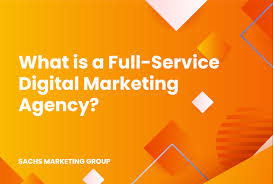The Power of Digital Marketing Agencies in Today’s Business Landscape
In the fast-paced and ever-evolving digital world, businesses are constantly seeking ways to stand out and reach their target audience effectively. This is where digital marketing agencies play a crucial role. These agencies are equipped with the expertise and tools to help businesses navigate the complex online landscape and achieve their marketing goals.
What Do Digital Marketing Agencies Offer?
Digital marketing agencies offer a wide range of services tailored to meet the unique needs of businesses in the digital realm. From search engine optimisation (SEO) and pay-per-click (PPC) advertising to social media management and content creation, these agencies provide comprehensive solutions to enhance a brand’s online presence.
The Benefits of Working with a Digital Marketing Agency
Collaborating with a digital marketing agency can yield numerous benefits for businesses. These include:
- Expertise: Digital marketing agencies have specialists in various areas, ensuring that your campaigns are executed by professionals with in-depth knowledge.
- Cost-Effectiveness: Outsourcing your digital marketing efforts to an agency can be more cost-effective than hiring an in-house team, especially for small and medium-sized businesses.
- Data-Driven Strategies: Digital marketing agencies leverage data analytics to develop strategies that are based on insights and metrics, leading to more targeted and effective campaigns.
- Scalability: Agencies have the resources to scale your campaigns as your business grows, ensuring that your online presence remains strong and competitive.
Choosing the Right Digital Marketing Agency
When selecting a digital marketing agency to partner with, it is essential to consider factors such as their track record, client testimonials, range of services offered, and communication style. A good fit between your business goals and the agency’s capabilities is key to a successful collaboration.
In Conclusion
In today’s digital age, having a strong online presence is vital for business success. Digital marketing agencies play a pivotal role in helping businesses navigate the complexities of the digital landscape and reach their target audience effectively. By leveraging their expertise and resources, businesses can unlock new opportunities for growth and achieve their marketing objectives.
Essential FAQs About Digital Marketing Agencies: Insights and Industry Leaders
- Who are the Big 6 digital marketing agencies?
- What do digital agencies do?
- Is a digital agency a good business?
- What is an digital marketing agency?
- What are the top 5 advertising agencies?
- How do I position my digital marketing agency?
- What are the top 7 types of digital marketing?
- What is the digital marketing agency?
Who are the Big 6 digital marketing agencies?
In the realm of digital marketing, the term “Big 6” often refers to some of the largest and most prominent digital marketing agencies in the industry. While the specific composition of the Big 6 may vary depending on factors such as revenue, client base, and global presence, some well-known names that are frequently included in this category are WPP, Omnicom Group, Publicis Groupe, Interpublic Group (IPG), Dentsu Group, and Havas Group. These agencies have established themselves as leaders in the field, offering a wide range of services and solutions to help businesses navigate the digital landscape and achieve their marketing objectives effectively.
What do digital agencies do?
Digital agencies play a pivotal role in the modern business landscape by offering a wide range of services aimed at enhancing a brand’s online presence and reaching its target audience effectively. From developing comprehensive digital marketing strategies to managing social media channels, creating engaging content, implementing SEO tactics, running PPC campaigns, and analysing data for insights, digital agencies provide tailored solutions to help businesses thrive in the competitive online environment. Their expertise lies in leveraging the latest technologies and trends to drive brand visibility, engagement, and ultimately, business growth in the digital realm.
Is a digital agency a good business?
The question of whether a digital agency is a good business is a common one among entrepreneurs and business owners looking to venture into the digital marketing industry. The answer largely depends on various factors, such as market demand, competition, expertise within the agency, and the ability to adapt to evolving digital trends. When well-positioned and equipped with skilled professionals, a digital agency can indeed be a lucrative and rewarding business opportunity. Success in this field often hinges on delivering high-quality services, staying abreast of industry developments, and building strong client relationships to drive sustainable growth and profitability.
What is an digital marketing agency?
A digital marketing agency is a professional service provider that specialises in creating and implementing online marketing strategies to help businesses promote their products or services on digital platforms. These agencies utilise a range of digital channels such as social media, search engines, email, and websites to reach and engage with target audiences effectively. By leveraging their expertise in areas like search engine optimisation (SEO), pay-per-click (PPC) advertising, content marketing, and social media management, digital marketing agencies help businesses enhance their online presence, drive traffic to their websites, generate leads, and ultimately increase conversions and revenue.
What are the top 5 advertising agencies?
When it comes to top advertising agencies in the digital marketing landscape, several renowned names stand out for their innovative strategies and impactful campaigns. Some of the top 5 advertising agencies globally include WPP, Omnicom Group, Publicis Groupe, Interpublic Group, and Dentsu Group. These agencies have established themselves as industry leaders with a track record of delivering successful advertising campaigns for a diverse range of clients across various sectors. Their expertise in creative storytelling, data-driven insights, and multi-channel marketing approaches make them go-to partners for businesses looking to elevate their brand presence in the digital realm.
How do I position my digital marketing agency?
Positioning your digital marketing agency effectively is crucial to stand out in a competitive market and attract the right clients. To position your agency successfully, you need to define your unique selling proposition (USP) that sets you apart from competitors. Identify your target audience and tailor your services to meet their specific needs and pain points. Showcase your expertise and success stories through case studies, testimonials, and a strong online presence. Consistency in branding, messaging, and service delivery will help build trust and credibility with potential clients. By focusing on delivering value and demonstrating your capabilities, you can position your digital marketing agency as a trusted partner for businesses looking to enhance their online presence and achieve their marketing goals.
What are the top 7 types of digital marketing?
In the realm of digital marketing, there are seven key types that businesses often utilise to enhance their online presence and engage with their target audience effectively. These include search engine optimisation (SEO), pay-per-click (PPC) advertising, social media marketing, content marketing, email marketing, influencer marketing, and affiliate marketing. Each type offers unique opportunities for businesses to connect with their customers, drive traffic to their websites, and ultimately increase conversions. By understanding and leveraging these different types of digital marketing strategies, businesses can create comprehensive and impactful campaigns that resonate with their audience in today’s competitive online landscape.
What is the digital marketing agency?
A digital marketing agency is a professional service provider that specialises in assisting businesses with their online marketing efforts. These agencies utilise various digital channels and strategies to promote brands, products, and services to a target audience on the internet. From search engine optimisation (SEO) and social media marketing to email campaigns and pay-per-click advertising, a digital marketing agency offers a range of services aimed at enhancing a brand’s online presence and driving engagement. By leveraging their expertise in the digital landscape, these agencies help businesses reach their marketing goals effectively in today’s highly competitive online environment.



